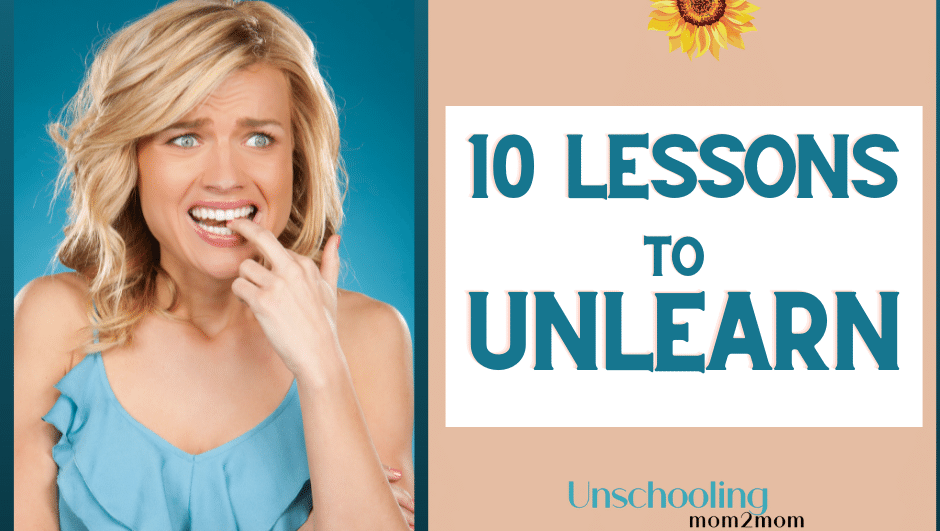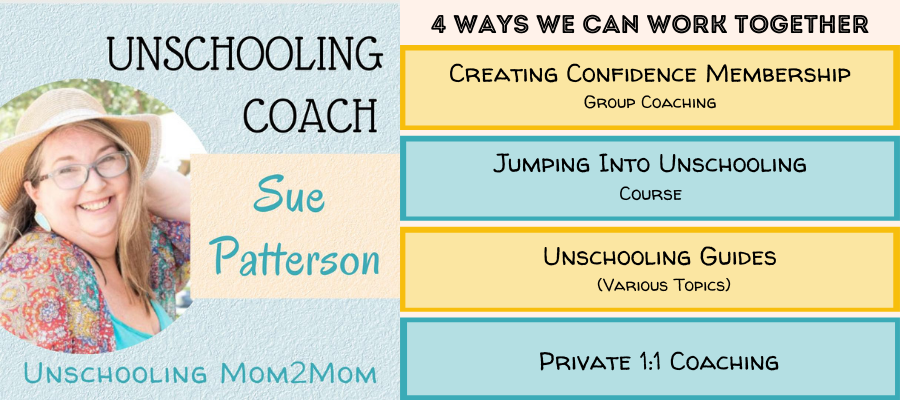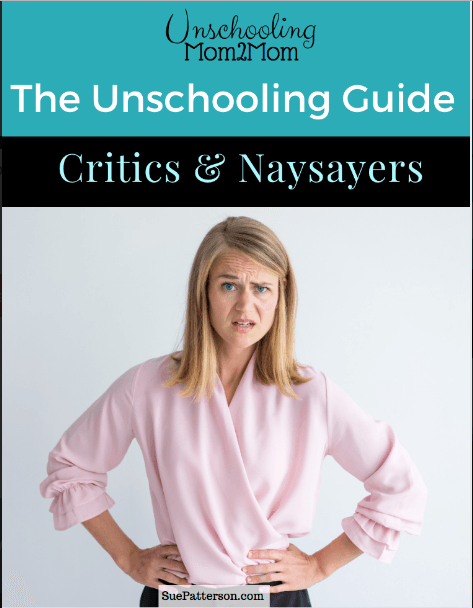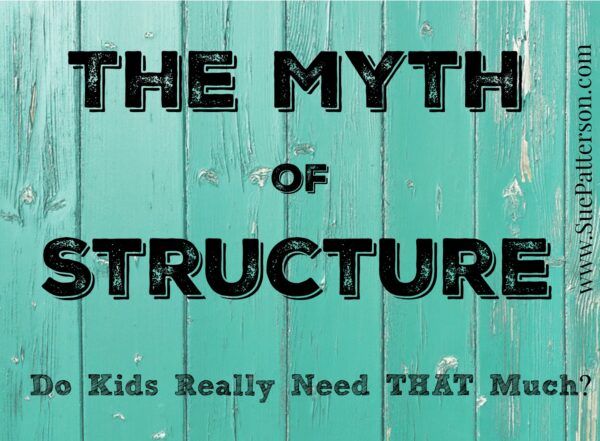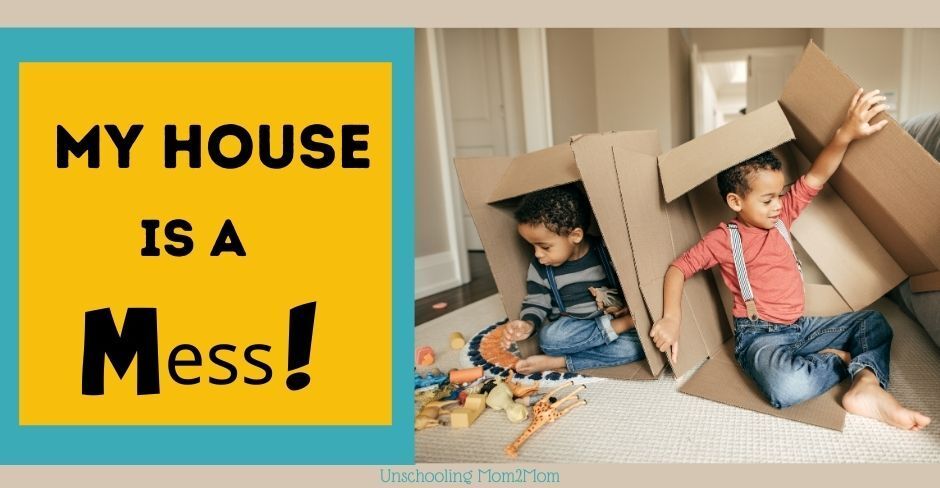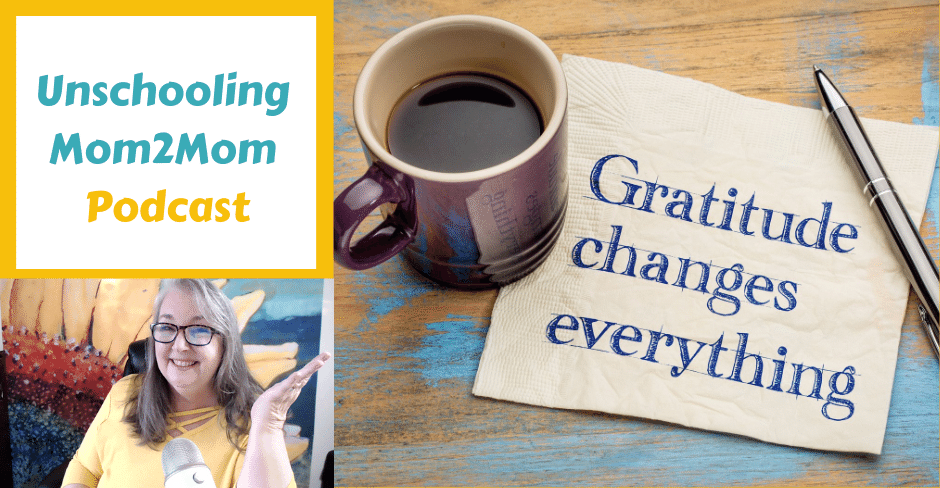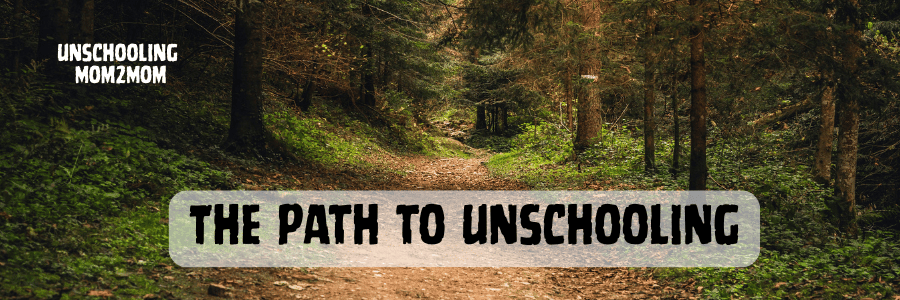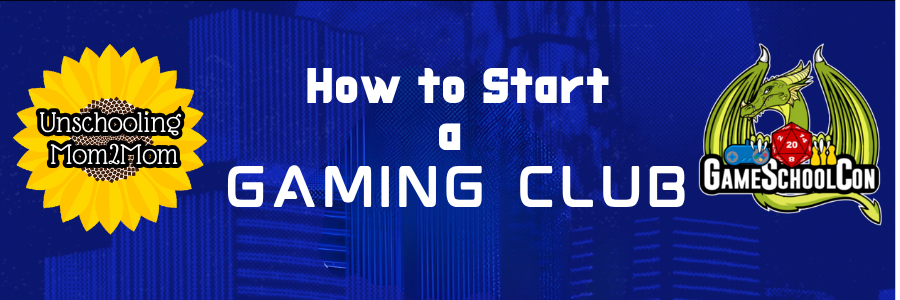10 Lessons to UnLearn
Podcast Transcript...
It’s all about the “learning”, right? We hear that all the time. And it’s true!
But it’s also about the UNlearning!
And homeschooling moms seem to have the biggest challenges in this regard.
I don’t know whether we’re so conditioned for approval – thank you, schools and mainstream socialization – or really why this is. But over and over these same particular issues crop up for those of us who choose to step into the home education world.
See if any of these ideas are lurking in your head. I've pulled together 10 Lessons to UnLearn, to help you overcome these obstacles.
Especially if you’re new to all of this or moving from homeschooling to unschooling.
Let’s clear them up so you can get on to successfully homeschooling your kids!
But first - I’m Sue Patterson and this is the Unschooling Mom2Mom podcast. Each week, I come in to talk with you about unschooling and how it can work for your family. Most of society - including the homeschooling world - pushes us toward control and away from letting kids discover interests and using these as “jumping off places” so to speak, for their learning. Kids learn. It’s in their hard-wiring. We may not always notice it - but it’s happening.
My own kids are grown now, and I’m creating resources - including pdf Guides, courses, and even a membership where you can get some more hands-on help. These podcasts are only 5-10 minutes long. I love that! (Although this is one ended up being 3 minutes longer - I'll work on that!) But a quick Unschooling PepTalk may be all you need to jump into your week.
If you need more, reach out. You really don’t have to do this alone.
10 Lessons You’ll to Want to Unlearn...
"I’m not smart enough!"
Don’t you think it’s odd when this irrational thought crosses your path? Most likely, you are a product of the school system yourself. And you want to put your child in the same place that didn’t prepare you well enough? That’s not logical.
The good news is that unschooling parents learn right alongside their kids. You don’t have to be THE ONE to bring all information to your child. And that’s so much healthier for the kids too. They learn to trust that they can figure things out, explore what’s interesting to them, and move in that direction. One thing really will lead to another - and you don’t have to be the one orchestrating it all!
"Who am I to do this?"
Do you hear that voice,
“Who do you think you are, young lady?”
Boy, do I hear that loud and clear!
This kind of talk seems to hone in on our self-doubt, magnifying it and attempting to embarrass us. It’s odd how we can do that to ourselves. But after years of conditioning, it shouldn’t be surprising.This is a spin-off of the idea that we need to always call in The Experts. We can’t possibly know what to do in any given situation.
Does this one plague you?
But did you call in a specialist when your child learned to walk or to eat solid foods?
Did you have a tutor sitting with you and your baby when he would attempt to talk?
Of course not!
Maybe you consulted some baby development websites, or your mom, or your sister… but otherwise, you left it to nature. You were completely ok with that. But learning – another one of those natural tendencies all humans have – you somehow don’t think you can do the same with that?
Not true! You can.
Your child is hardwired to learn. Your role is kind of like when they were learning all of those baby skills: You created an environment that was conducive for them developmentally and based upon their interests. You were flexible and continued to offer options as the baby began to figure it all out. The exact same process can happen with learning. And it IS happening with learning. Sometimes we have to get out of the way.
“Real learning” has to look like school.
School really creates a one-size-fits-all approach to learning. But educational research shows that children learn in so many different ways – visually, auditorily, kinesthetically, experientially. There’s no way schools can accommodate all the different ways a classroom full of kids could possibly need. So instead of admitting that, they simply try to make the kids adapt to the System. They declare that their way is The Way, and that’s that.
But it’s not true. In fact, when we look back at the things we retain and/or the things we really learned – more often than not those experiences happened outside the classroom.
More Reading about this...
The Curriculum Crutch
What will the neighbors/relatives think?
This can be tough. Peer pressure has such a strong grip on so many of us. Again, all those years of having to fend for yourself for hours at school – you had to learn how to cope with peer pressure! So when we care too much about what a stranger at the park or the clerk at CVS has to say about why our little one isn’t in school, we need to recognize that as truly inconsequential to our day. Because it is!
For relatives, some we only see at holidays or special gatherings, I have a lot of resources to help you get onto steadier ground with them. And, as we’re approaching the holidays, I’ll put links in the shownotes to help you build up your confidence. Sometimes they’re used to us *needing* them in ways we just don’t anymore. That can sometimes be what’s going on - our new shifting role. I think the biggest thing to remember when we feel self-conscious is that we are our child’s advocate. It’s the most important role we can have. What other people think about us and our choices… well, that’s none of our business. And certainly not more important than advocating for our own child.
More Reading about this...
Dealing with Naysayers
Pass the Bean Dip.
Even More Help with Critics
Sometimes this is the hardest obstacle to overcome! For years, I've heard parents talk about feeling uncomfortable talking with relatives and friends about this unconventional choice. And yet, something they push us into conversations!!
Be prepared! Tackle your fears. What's underneath all of that? This Unschooling Guide will help you figure that out - and give you the tools and strategies to face friends and family with confidence!
My kids are so unmotivated!
Kids can be unmotivated for a variety of reasons – and now that you’re going to be with them more, you’ll be able to figure out what that is all about. Usually it’s because they haven’t been allowed to make very many choices for themselves. Either a teacher was telling them what to do, or we as parents were prodding them along from one thing to another. Sure, they may have been unmotivated in the old setting, but that doesn’t have to be the new norm.
Worrying about gaps in their learning...
Another thing to remove is this fear that they will have gaps or that we need to “stay on track.” But the question is really, on track to what? Those tracks that you’re worried about really only apply in a school setting. On track to adulthood? Being competent? Research shows that rote memorization isn’t that helpful - and is often forgotten. Learning how to find the resources we need when a problem pops up - that’s more critical. And we don’t learn to do that in the school way - we learn by actively engaging in our lives.
Truth is, we all have gaps – times we weren’t paying attention or weren’t interested and tuned it all out. If it’s something we ended up needing, we can look it up! Consulting, Siri, Google, or Youtube - while we’re feeling curious - is the way of today. And, because we’re interested, we are much more likely to remember it.
Children need more structure.
This is a myth. Structure makes US feel better when life is feeling chaotic. But let’s not kid ourselves – the children aren’t the one who are needing structure. Sure, some prefer to have bit of a routine, or need more lead time when shifting from one activity to another. But no child needs the structure of Math every morning at 10 a.m. or History every afternoon at 1 p.m. Sometimes we have to look at the fact that the adults cling to the idea of structure when they feel life is a bit chaotic. Instead, opt for figuring out what the rhythm is for your days. When is their peak time? When is yours? When could meals happen - they don’t have to happen at any particular time. And these are good breaks to transition into something else. Let your structure evolve into what works for you and the kids. And then stay flexible to change it when you need to. This freedom is one of the big benefits of unschooling!
Comparing Your Kids to Other Kids
Compare and despair!
Comparisons and competition is also a remnant of years in school. It was used to motivate us and even to shame us into complying with the expectations for the class. So it needs to go.
As parents, the comparing often looks like, “Her kid is doing xyz or knows this/that and mine doesn’t! Oh no! I’m failing!” We need to remember that comparing is never a good idea – whether it’s comparing kids or comparing ourselves with other mothers. Kids all develop differently. They have interests and needs that vary from child to child.
This is your opportunity to create TRULY individualized learning situations. And comparing yourself to other moms? So often we look at a mom who seems really on top of things and we feel sub-par.
But we don’t really know what her life is like.
We don’t know how much longer she’s been at this either!
It’s a bad idea to compare your beginning on this homeschooling path, with someone who started years before you. Also, you have no idea what challenges she has regarding her own family – people often only share the highlights on social media.
Everyone’s House is Clean Except Mine
Let me put this one to rest right away. When people LIVE in a house, it gets messy! Period. Don’t let having a clean house become a stumbling block to learning. Think about when you dove into some project. Didn’t you spread your stuff out? Same for kids and their projects. Create environments where they can explore their curiosity and get creative. There will be plenty of time later on to have a clean house.
Also, remember, it’s not JUST a house. It’s a workshop, an art studio, a library, a gym, a restaurant, a cooking school, a pet shop - the list goes on and on, right?
Don’t be jealous of people with clean houses. Yours looks the way it does because kids are actively engaging in play! And that’s what they’re supposed to do!
"If something doesn’t work out, I’m a miserable failure at this."
I think this is more of that same school conditioning. We had so much focus on how many we got WRONG… instead of how many we got RIGHT! And then adding in all the humiliation that we experienced for years if we got bad grades, or answered incorrectly in class, NO WONDER we panic a little at making mistakes. We need to shift this kind of thinking though. It’s not good for us, and it’s not a good example to set for our kids. Missteps, mistakes - big or little - are really just data for the next time that question surfaces again. If we’re filled with fear and anxiety, we can’t really learn from it. And that’s the true point of it all.
We may stumble a little and want to throw in the towel. But remember – even if you’re taking two steps forward and one step back – you’re still making progress!
Don’t give up! You’re going in the right direction.
And you DO have unschooling resources available. Just reach out!
That’s it for me this time. Enjoy your kids. Embrace unschooling. And we’ll talk again next week.
What Parents are Saying...
"Great podcast! Especially about the house not being clean as I want. That is so hard for me. Lol I need to make a sign welcome to our workshop, library, art studio etc. Thank you so much! I really appreciate all you do." ~ Janelle F.
Unschooling Mom2Mom Podcasts that might help...
Structure, Schedules, and Unschooling


